
Powerful language learning environments
In assessment tests and international comparative research, in recent years the Flemish students perform less well in terms of language skills. Our educational field needs more guidance to stimulate language development of students on all levels. In this programme, we research how we can help individual teachers and school teams to improve the students' language skills through didactic strong language education, a strategic, purposive language policy, and a motivating reading environment beyond the school walls. The better children and youth's language skills, the higher their chances of success inside and outside of school!
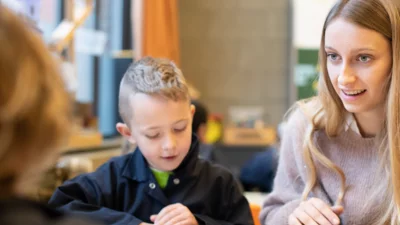
Learning from, in and about language
What are we researching and for whom?
At school as well as elsewhere, language occupies a prominent place. Teachers and students use language all the time to learn and communicate, also outside of the language lessons. The better children and youth's language skills, the higher their chances of success inside and outside of school! The teacher plays an important part in this. That is why our research is focussed on what teachers need so they can bring all students as far as possible what concerns language skills.
Desired outcome
With our research, we want to offer teachers and school teams more handles to put effective language didactics successfully into practice. Additionally, we also want to make them stronger in realising a strategic and targeted language policy that responds to the students' language needs. Further, we want to enable teachers to improve the language competences of all students, also outside the language lessons and to enforce and broaden reading environments of students with partners from outside the school. We also check how literature can feed the diversity of thought of children and youths and can literally give them language. And finally, we want to help teachers and teams to deal constructively with mutilingualism and the learning of several languages at school.
Research lines
Didactics Dutch
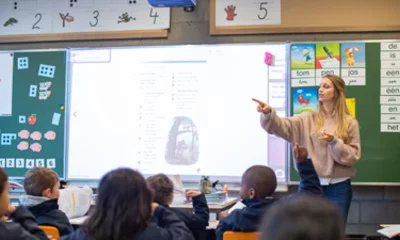
Teachers from preschool, primary, and secondary education want to know what works in the field of language didactics, and they need a guideline to put those didactics successfully into practice. Within this line, we research what support and tools can enforce the skills and capacity to act of teachers in the field of language didactics.
Language policy
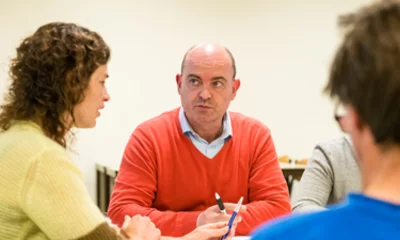
Research has shown that schools do take initiatives to stimulate the language development of their students, but that this is not done in a coherent way. With this line, we want to offer school teams more guidelines to have a dynamic language policy with clear goals and concrete actions within a strategic plan.
Language in all subjects
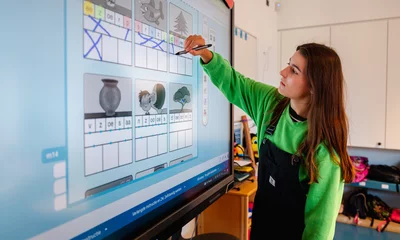
The language and thought development of the students is so much interconnected that it is necessary to spend sufficient attention to their language outside of the language lessons too. In this way, there is a better chance that the objectives of these lessons and activities are achieved.
Multilingualism and foreign language education

Multilingualism has many advantages in society. Within a school context, multilingualism is sometimes seen as an obstacle, so that its possibilities are not used optimally. Children and youths need appreciation for their linguistic baggage and a positive attitude towards foreign-language education. Through this research line, we contribute to the validation of multilingualism in education. Artevelde UAS is a partner in the Erasmus+-project A-PEL, that contributes to a more accessible and effective use of the European Language Portfolio.
Schools and partners join hands for motivating learning environments
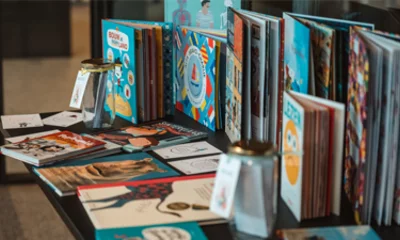
These days, children and youths have more difficulties to get into reading. We research how schools can join hands with partners to let youths experience how much importance society gives to reading, to increase their reading pleasure and motivation, to optimise their attitude towards reading, to improve their reading behaviour, and to make sure they do not see reading as merely a school activity.
More information?




